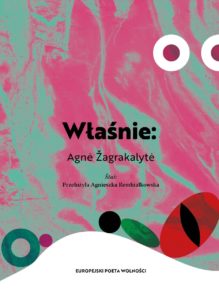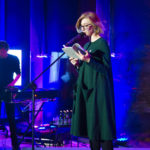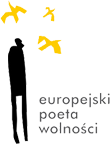Agnė Žagrakalytė

Agnė Žagrakalytė , Lithuania. transl. by Agnieszka Rembiałkowska
Štai: [Here is:]
Agnė Žagrakalytė is a shamaness familiar with the art of casting and lifting spells. Having mastered the language of wild nature, she is equally skilled in making her way through thickets of text. She is possessive, insatiable, and bold, she discovers through touch, the body and blood. Her ear is finetuned to the creaking of tectonics, the hum of memory turbines, the screeches of narcissism and the cracks emitted by vortexes of nothingness.
Wybór wierszy
Agnė Žagrakalytė

Agnė Žagrakalytė (b. 1979 in Puodžiai, Pasvalys District Council) is a poet, novelist, essayist and feature writer, graduate of Lithuanian studies at the Vilnius Pedagogical University. Žagrakalytė debuted as a poet in 1996 – in the same year, even before her first book of poetry was published, she received the award for the best poetry debut. She currently lives in Brussels with her family. Žagrakalytė writes essays and features for Lithuanian magazines on culture. She sketches when she writes, and trains iaidō. Žagrakalytė is the author of three books of poetry: Išteku (I’m getting married, 2003), Visa tiesa apie Alisą Meler (The whole truth about Alisa Meler, 2008), Štai (Here is, 2017), and two novels: Eigulio duktė: byla F/117 (The lumberjack’s daughter: case no. F/117, 2013), a family saga based on actual events, and a “literary comic strip” Klara (Clara, 2014). Translations of her poems have appeared in anthologies of “emerging Lithuanian poetry”: Six Young Lithuanian Poets (selected by K. S. Keys, 2002), Artistic Cloning (2010, transl. by J. Zdanys), Coeurs ébouillantés: Nuplikytom širdim (ed. by N. Barriere, D. Sakalauskaitė, 2013), and How the Earth Carries Us: New Lithuanian Poets (ed. by M. Burokas, 2015). Žagrakalytė has won important Lithuanian literary awards, such as the Liūnė Sutema award (1996, for emerging young writers) and the Jurga Ivanauskaitė award for “courage, openness and freedom of artistic expression “ (2014, for the novel Eigulio duktė: byla F/117), as well as a number of festival awards, e.g. Poezijos pavasaris (Poetry Spring, 1998) and Poetinis Druskininkų ruduo (Druskininkai Poetry Autumn 2003). Her volume Štai received first place in the 2017 Book of the Year poll (in the poetry category). Agnė Žagrakalytė’s works have been translated into English, French, German, Slovenian, Italian and Polish (publications in literary periodicals).
Agnieszka Rembiałkowska
 Agnieszka Rembiałkowska (b. 1980 in Włocławek) graduated in Baltic Studies from the University of Warsaw, completed several long-term internships at Lithuanian universities and currently lectures at the Baltic Studies Unit of the University of Warsaw’s Faculty of Polish Studies. She is a member of the Association of Literary Translators. She likes words, but she prefers thinking to writing. Her first literary translation from Lithuanian was published in 2005. Rembiałkowska took part in a number of Polish-Lithuanian translation projects, such as Pamario literatūra lenkiškai=Literatura litewskiego Pomorza po polsku (2007–8) and Simonaitytė prabyla lenkiškai=Simonaitytė po polsku (2018), as well as international translation seminars, including Literatūros seimelis=Sejmik literacki (od 2013), and Tłumacze Bez Granic (2013, 2014, 2017). She has contributed to the preparation of a Polish anthology of 20th-century Lithuanian poetry. She received the Poezijos pavasaris (Poetry Spring) festival award for her translations of Lithuanian poetry into Polish (2018). She has translated poems by Vladas Braziūnas, Rasa Čergelienė, Nijolė Daujotytė, Sigitas Geda, Dainius Gintalas, Birutė Jonuškaitė, Antanas A. Jonynas, Elena Karnauskaitė, Aušra Kaziliūnaitė, Giedrė Kazlauskaitė, Jonas Liniauskas and Agnė Žagrakalytė.
Agnieszka Rembiałkowska (b. 1980 in Włocławek) graduated in Baltic Studies from the University of Warsaw, completed several long-term internships at Lithuanian universities and currently lectures at the Baltic Studies Unit of the University of Warsaw’s Faculty of Polish Studies. She is a member of the Association of Literary Translators. She likes words, but she prefers thinking to writing. Her first literary translation from Lithuanian was published in 2005. Rembiałkowska took part in a number of Polish-Lithuanian translation projects, such as Pamario literatūra lenkiškai=Literatura litewskiego Pomorza po polsku (2007–8) and Simonaitytė prabyla lenkiškai=Simonaitytė po polsku (2018), as well as international translation seminars, including Literatūros seimelis=Sejmik literacki (od 2013), and Tłumacze Bez Granic (2013, 2014, 2017). She has contributed to the preparation of a Polish anthology of 20th-century Lithuanian poetry. She received the Poezijos pavasaris (Poetry Spring) festival award for her translations of Lithuanian poetry into Polish (2018). She has translated poems by Vladas Braziūnas, Rasa Čergelienė, Nijolė Daujotytė, Sigitas Geda, Dainius Gintalas, Birutė Jonuškaitė, Antanas A. Jonynas, Elena Karnauskaitė, Aušra Kaziliūnaitė, Giedrė Kazlauskaitė, Jonas Liniauskas and Agnė Žagrakalytė.

